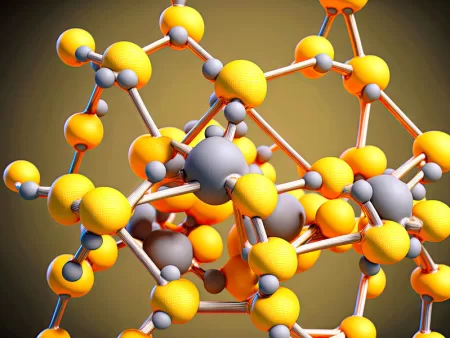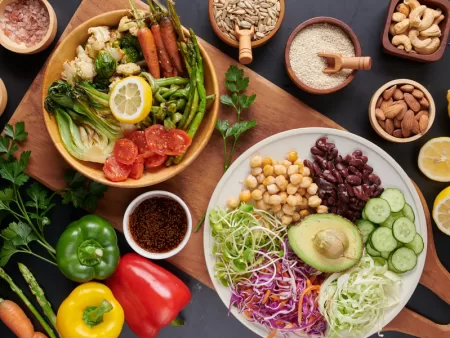
Are you tired of the endless cycle of trying to gain muscle and lose fat with little success? How to do this effectively and correctly, so as not to harm yourself first?
Understanding the Basics
Eating Right for Muscle and Fat Loss
When you’re trying to get stronger and also want to lose some fat, what you eat is really important. Your body needs different kinds of food to help with this.
First, you need proteins. They help fix and grow your muscles, especially after you work out. Foods like chicken, fish, beans, and even dairy products are good for this. Then, there are fats. But not the bad kind you find in junk food. You want healthy fats, like those in nuts, fish, and olive oil. They give you energy and keep your body working well. Lastly, we have carbs. Carbs are not your enemy. They give you energy for your day and your workouts. But choose carbs like whole grains, fruits, and veggies, not sugary stuff.
Managing Calories
Calories are about balancing the energy you eat with the energy your body uses. To lose fat, you need to use more energy than what you get from food. But for building muscle, sometimes you need a bit more energy from food.
So, to lose fat, eat a little less than usual. This doesn’t mean starving. It’s about small changes, like a smaller lunch or one less snack. For muscle building, you might eat a little more. But it’s important to eat healthy, even when you’re eating more. It’s not about eating everything in sight; it’s about smart choices.
Remember, it’s not about big changes all at once. Small steps and listening to your body is the way to go. And everyone is different, so what works for one person might not work for another. The key is to try, see how your body reacts, and then adjust as needed.
Effective Training Strategies
Strength Training
Strength training is super important for building muscle. It’s more than just picking up weights; it’s about doing exercises that work many muscles at once. Think about exercises like squats, where you bend your knees like you’re sitting down, deadlifts, where you lift a weight off the floor, and bench presses, where you push weights up while lying on a bench. These exercises are great because they work out different parts of your body all at once, making your workout really effective.
Consistency
Sticking to your workout plan is key. Regular workouts tell your muscles, ‘Hey, it’s time to get stronger!’ Then there’s this cool idea called ‘progressive overload.’ It means slowly doing more in your workouts, like lifting heavier weights or doing more reps. This helps your muscles grow stronger over time, without getting hurt.
Cardio
Cardio is also part of a good workout plan, but it’s about finding the right balance. Too much can make it hard to build muscle, but just the right amount is perfect for losing fat. Cardio is stuff like running, cycling, or fast walking. It’s good for your heart and helps burn calories. The trick is to mix cardio with strength exercises. This way, you get the best of both – building muscle and losing fat.
It’s important to remember that everyone’s body is different. What works for someone else might not be the best for you. Try out different exercises and see what you enjoy and what feels good for your body. And always remember to take breaks and rest. Your muscles need rest to grow stronger and stay healthy.
Personal Physique Training
Everyone’s body is unique, and knowing what type you are can help you work out and eat better. There are three main types of bodies: ectomorphs, mesomorphs, and endomorphs.
- Ectomorphs. Ectomorphs are usually thin and have bodies that use up energy fast. If this is you, you might find it tough to gain weight or muscle. Lifting heavier weights but not doing too many reps can help you build muscle. You don’t need too much running or cycling. Eating is key for ectomorphs. You need more food, especially protein like chicken or beans, and healthy fats like avocados. Carbs are good too, but stick to healthy ones like whole grains and vegetables.
- Mesomorphs. Mesomorphs often have a body that’s naturally fit and muscular. If you’re a mesomorph, you’re lucky because your body responds well to all kinds of exercises. Mix it up with cardio (like running) and strength training (like lifting weights). Change your routine often. When it comes to eating, keep it balanced. Protein, fats, and carbs are all important, but watch how much you eat to avoid putting on too much weight.
- Endomorphs. Endomorphs often have a strong build but may gain weight easily. If this sounds like you, doing cardio regularly is important to keep a healthy weight. Mix in some strength exercises too. Eating right is really important for endomorphs. Focus on foods like lean meats, lots of veggies, and healthy fats. Try to cut down on sugars and junk food.
These are just guidelines based on general body types. Everyone is different, so it’s okay to adjust these tips to fit you better. The most important thing is to find a workout and diet plan that feels good and works for you. Pay attention to your body and how it reacts to different exercises and foods, and stay consistent with your routine.
Recovery and Rest
Sleep
Sleep is like your body’s repair time. When you’re working out to build muscle and lose fat, good sleep is super important. It’s not just about being in bed for 7 to 9 hours. It’s about getting deep, quality sleep. This kind of sleep helps your body repair your muscles. It’s like giving your body the quiet time it needs to fix all the tiny tears in your muscles from working out. Plus, when you get enough good sleep, you feel more alert and in a better mood the next day.
Active Recovery
Active recovery is about doing light and gentle activities on days you’re not doing hard workouts. These kinds of activities help your muscles stay active without stressing them too much. They’re a nice, easy way to keep your body moving and help reduce the chance of getting sore or injured. Active recovery keeps you active and healthy, even on your rest days.
Always remember, rest and recovery are just as important as your regular workouts. Getting enough sleep and doing some light activities on your off days help your body heal and get stronger. It’s not just about pushing hard in the gym; it’s also about letting your body rest and recharge. By taking care of your rest and recovery, you’ll be on the right path to reaching your fitness goals in a healthy and balanced way.
Supplementation and Hydration
Supplements
Supplements are like helpers for your workout goals. They’re not essential, but they can give you a boost. Think about whey protein – it’s like giving your muscles a quick and easy source of protein right after your workouts. This can help with muscle repair and growth. Then there’s BCAAs, short for branched-chain amino acids. They’re like the building blocks for your muscles and can help reduce muscle soreness. Creatine is another popular supplement. It’s like an energy booster for your muscles, helping you push a bit harder during your workouts. Remember, though, supplements should never replace real food. They’re just there to add a little extra to your diet.
Staying Hydrated
Hydration is super important. Your body needs water like a car needs oil; it keeps everything running smoothly. When you exercise, you lose water through sweat. So, it’s important to replace that water to keep your body happy. Drinking enough water helps with your physical performance. It’s like oiling the gears – everything works better when you’re well-hydrated. Water also helps with recovery after your workouts. It helps carry nutrients to your muscles and gets rid of waste, which means you recover faster and feel better. Try to drink water throughout the day, not just when you’re thirsty.
Supplements can give you an extra edge, and water keeps your body in top condition. Remember, the key is balance and making sure you’re listening to your body. It will tell you what it needs – sometimes, it’s as simple as a glass of water!
The Role of Hormones in Building Muscle and Losing Fat
Testosterone and Growth Hormone: Helping Your Muscles
Two big helpers for your muscles are testosterone and growth hormone. Testosterone helps everyone, not just men, to make their muscles stronger and bigger. It’s like a muscle repair tool that works when you exercise. Growth hormone is another friend for your muscles. It’s most active when you’re sleeping and after you work out. This hormone helps your body use fat for energy and helps your muscles recover and grow. Good sleep and regular exercise can boost this hormone.
Insulin and Cortisol: Affecting Your Body Fat
Insulin and cortisol are hormones that affect how your body deals with fat. We can say that Insulin acts as a blood sugar regulator. It helps turn the sugar from food into energy. But, if you eat too much sugar, insulin can make your body store fat. Cortisol, known as the stress hormone, increases when you’re stressed. Too much cortisol can make your body hold onto fat, especially around your belly.
Keeping these hormones balanced is really important for staying fit. You can help balance them by getting good sleep, eating healthy foods, managing stress, and exercising regularly. Everyone’s body is different, so it’s important to notice how your body reacts to different foods, stress, and exercise. This will help you understand the best way to reach your fitness goals.
Conclusion
Nourishing with the right mix of proteins, fats, and complex carbs is essential for muscle gain and efficient fat reduction. Diverse strength exercises, consistent fitness schedules, and well-adjusted cardio form the crux of an effective workout plan. Personalizing your fitness and nutrition approach based on your body type (ectomorph, mesomorph, or endomorph) enhances progress. Emphasizing rest, including deep sleep and low-intensity activity days, is vital for muscle restoration and health maintenance. Maintaining hydration and considering supplementary nutrients can provide additional support to your fitness endeavors.
FAQs
A balanced diet includes a good mix of lean proteins, essential fats, and complex carbohydrates to fuel muscle growth and energy needs.
No, exercise routines should be tailored based on individual fitness levels, goals, and body types for maximum effectiveness.
Determine whether you’re an ectomorph, mesomorph, or endomorph, and then adjust your diet and exercise intensity to suit your body’s specific needs.
Rest periods, including sufficient sleep and low-intensity activities, are essential for muscle recovery, preventing burnout, and ensuring overall health.
Adequate hydration ensures optimal physical performance, aids in post-exercise recovery, and maintains energy levels during workouts.







